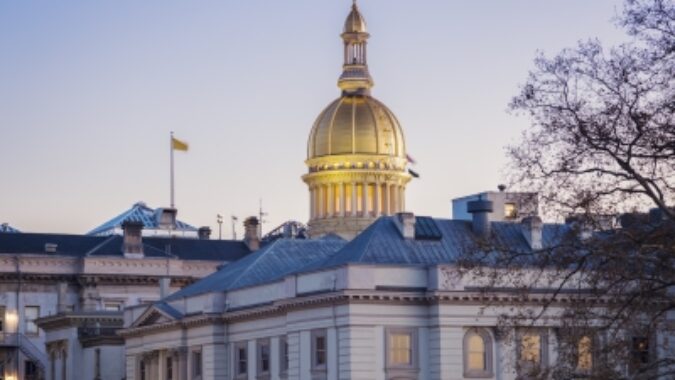NJBIA’s Government Affairs Policy Committee recently held a hybrid meeting with Assembly Majority Leader Louis Greenwald (D-6) to discuss the FY23 state budget and other legislative priorities.
Greenwald highlighted the state’s economic growth in recent quarters despite the difficulties encountered in the past two years of the pandemic. He added that the state is currently collecting more in taxes because of an exploding real estate market and credited the strength of that market to the state’s top-ranked public education system.
Still, Greenwald acknowledged ongoing concerns regarding affordability in New Jersey and the ever-rising cost of property taxes. He noted that despite the state’s investments in K-12 education, New Jersey continues to suffer one of the highest rates of outmigration among high school graduates who attend college outside of the Garden State and do not return. Therefore, he said, it is important to make New Jersey an affordable environment with high-quality higher education to retain these talented students.
During the Q&A session, Greenwald spoke extensively on the recent legalization of recreational cannabis and how the changing landscape affects employers. He stressed that, first and foremost, individuals must exercise responsibility and intelligence, just as they do with alcohol.
He said that while the Cannabis Regulatory Commission and policymakers will continue to set standards and guidelines for testing and workplace impairment recognition experts (WIREs), the responsibility ultimately rests with the individual.
Greenwald also addressed the corporate business tax and explained that, while the government is generating revenue from taxes, it is due to the success of New Jersey businesses, rather than an increase in the tax rate.
He asked for the business community’s support in restructuring New Jersey’s tax base to reflect current realities and address the high cost of property taxes. He argued that property taxes are blind to economic realities and have an outsized burden on taxpayers and that we should look at other options such as a local tax that is more receptive to market pressures.
NJBIA Vice President of Government Affairs Christopher Emigholz also provided an overview of the state’s FY23 budget. While he praised some historic achievements, such as the increase in pensions and school funding, Emigholz reminded attendees that there were still some issues of concern. Emigholz expressed concern regarding issues of sustainability, as there still is a structural imbalance between revenues and spending in the proposed budget.
Additionally, there are issues of affordability, especially for businesses that are not addressed, as they are not eligible for the ANCHOR property tax rebate program despite the fact that businesses pay nearly half of the state’s property taxes.
Emigholz also noted that Gov. Phil Murphy and his administration remain hesitant to use federal funds to repay federal loans taken out to stabilize the unemployment insurance trust fund.
Emigholz said NJBIA continues to advocate for the use of ARPA funds to replenish part of the fund and for the Governor’s office to release a comprehensive plan on how the state will spend the remaining ARPA funds.
Emigholz noted that as of the latest estimate, New Jersey owes the federal government several hundred million dollars of debt in unemployment loans - and paying that off before the fall will avoid a $75 million federal UI tax increase.




